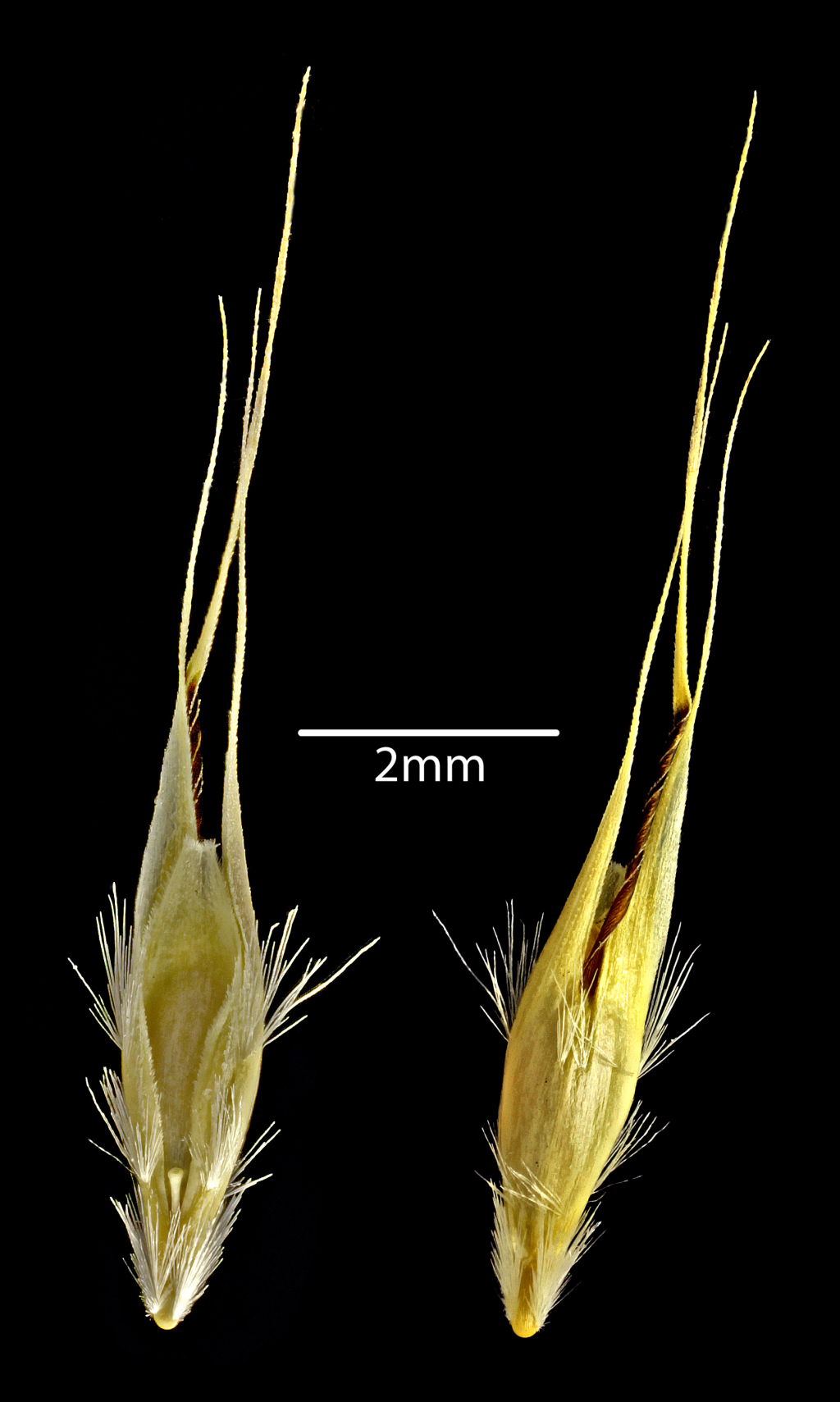Rytidosperma penicillatum
(Labill.) Connor & Edgar Slender Wallaby-grassLoosely tufted, shortly rhizomatous perennial. Culms to 70 cm high. Leaves glabrous to sparsely hairy; blade flat, folded or inrolled, normally fine and flexuose, short and rigid in some alpine specimens, to 15 cm long and 2 mm wide. Panicle linear, sparse or occasionally compact, 3–15 cm long. Spikelets commonly purplish, 4–7-flowered; glumes subequal, acuminate, 10–14 mm long; lemma 3.5–4.5 mm long, with hairs in two series, the upper reduced to 2 sparse dorsal tufts (or these sometimes lacking), with more prominent marginal tufts, the lower series more or less complete but tufts typically short and sparse, commonly overlapped by the denser callus tuft; lateral lobes erect, 5–8 mm long, evenly tapered, setiform for about half the length; central awn exceeding lateral lobes by 3–5 mm, usually pale, weakly twisted and less than 0.3 mm wide at base; palea lanceolate to oblanceolate, exceeding sinus by c. 1 mm. Flowers Sep.–Feb.
Wim, GleP, Brid, VVP, VRiv, GipP, OtP, WaP, Gold, CVU, GGr, DunT, NIS, EGL, EGU, WPro, HSF, HNF, OtR, Strz, MonT, HFE, VAlp. Typically a grass of cooler forests south of the Great Dividing Range, but occurring occasionally in the north-east. Not uncommon in the alps where often represented by a distinctive form with broader leaves, usually rather weakly ascending culms, a more compact inflorescence and with florets having shorter lateral lemma lobes than normal.
Often confused with the very similar, and often coextensive, Rytidosperma pilosum. The two are best separated on the relative palea length, and secondarily the colour, degree of twisting and width of the base of the central awn. The commonly used character of the slender or compact inflorescence for R. penicillatum or R. pilosum respectively although useful, is less reliable than the other characters noted.
Walsh, N.G. (1994). Poaceae. In: Walsh, N.G.; Entwisle, T.J., Flora of Victoria Vol. 2, Ferns and Allied Plants, Conifers and Monocotyledons, pp. 356–627. Inkata Press, Melbourne.
 Spinning
Spinning

